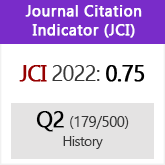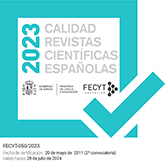Entre los Austrias y los Borbones. La realidad de un tribunal inquisitorial de distrito: Logroño, 1690-1705
DOI:
https://doi.org/10.3989/hispania.1997.v57.i196.691Keywords:
Spain, 17th and 18th centuries, Inquisition, Social History.Abstract
The last years of the 17th century and the early 18th in Spain could be defined as a change in dinasty, conflict of succession, social instability and projects of reformation in all fields. Logically, the Inquisition was also affected by these factors. Towards the end of the 17th century, the foundations on which the inquisitorial structure lay were zealousy questioned by different sectors of the body of the Monarchy, and the economic and social basis of the Holy Office left the century inmersed in a deep crisis. With the arrival of Philip V, in collaboration with the Supreme Council, a great number of reform, initiatives were fostered in order to attain the adaptation of the structures and functioning of the Inquisition to the new set of circumstances in which they had to act. The aim of this work has been to unearth in what way this juncture affected the daily dynamics of a district inquisitorial tribunal, like the one in Logroño, that is to say, what impact this situation had on its structure. Therefore, the sociologic characterisation of the bureaucratic group in service to the tribunal, inquisitors and officials, would be the fundamental idea with which we shall try to grasp the reality of this tribunal in the passing years between the 17th and 18th centuries.
Downloads
Download data is not yet available.
Downloads
Published
1997-08-30
How to Cite
Torres Arce, M. (1997). Entre los Austrias y los Borbones. La realidad de un tribunal inquisitorial de distrito: Logroño, 1690-1705. Hispania, 57(196), 731–773. https://doi.org/10.3989/hispania.1997.v57.i196.691
Issue
Section
Studies
License
Copyright (c) 2019 Consejo Superior de Investigaciones Científicas (CSIC)

This work is licensed under a Creative Commons Attribution 4.0 International License.
© CSIC. Manuscripts published in both the printed and online versions of this Journal are the property of Consejo Superior de Investigaciones Científicas, and quoting this source is a requirement for any partial or full reproduction.All contents of this electronic edition, except where otherwise noted, are distributed under a “Creative Commons Attribution 4.0 International” (CC BY 4.0) License. You may read here the basic information and the legal text of the license. The indication of the CC BY 4.0 License must be expressly stated in this way when necessary.
Self-archiving in repositories, personal webpages or similar, of any version other than the published by the Editor, is not allowed.














